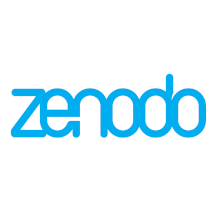Attendees:
Bartha M Knoppers (BMK) (Chair), Michaela T Mayrhofer (MTM) (Co-Chair), Pascal Borry (PB), Jos Dumortier (JD), Sophia Turner (ST), Joel Minion (JM), Melanie Gouisaf (MG), Pilar Nicolas (PN), Fruzsina Molna-Gabor (FM-G), Mark Phillips (MP), Alexander Bernier (AB), Mavis Machirori (MvM) – notes
Apologies:
Madeleine Murtagh (EUCAN-Connect), Claudia Emmerson (ReCoDID)
EUCAN projects represented: EUCAN-Share; EUCAN-Can; EUCAN-Connect, iRECEPTOR Plus, CINECA
| AGENDA | MINUTES
|
ACTION
|
ACTION OWNER |
| Welcome, introductions, clarification of purpose and outcomes
|
BMK welcomed everyone and introductions and apologies were noted.
BMK gave a brief overview of EUCAN.
MTM introduced and discussed the background and concept of the Hackathon. |
||
| Presentations from each EUCAN project | A representative of each project presented a 3-page summary of their EUCAN project. The summaries also included the project aims, the ELSI package and related deliverables (Appendix 1)
Hackathon colleagues had opportunities to seek clarification and voice concerns over the work other partners presented. The presentations highlighted areas of commonality between the projects. Questions were raised at varying points about the definitions of data users, data sharing, cohorts/populations and data collection within each project.
Other discussion points arising included issues around consent into the projects and feeding back of results. Feedback was discussed in the context of results to project participants and to ELSI Hackathon colleagues.
BMK suggested sharing expertise that the ELSI colleagues already have. She shared insight about a meeting she had attended on the 29th August. She suggested that PB could provide more information on work he has done on return of results and what tools they are building from there. |
Update 3-page summaries to include timelines for deliverables and send to MvM
Share updated summaries Share consent document from 29th Aug meeting Share tools they are using for feeding back results [COMPLETED]
|
ALL
MvM
BMK
PB
|
| Presentation of thematic analysis of overlap | MvM presented a thematic analysis of projects, highlighting (Appendix 2) based on information provided in the weeks prior to the meeting convening.
BMK suggested that projects need to have more oversight of each other so no duplication of work |
||
| Discussion of project overlaps | Colleagues discussed how to work together including areas of commonality. These conversations built on the questions and discussions arising from the presentations and thematic analysis earlier in the day.
Areas of common ground included aspects of legal and ethical frameworks that each project had to abide by. PN highlighted that there is current disagreement on interpretations of law/guidelines and added that as it is not always known when guidelines become law, project partners should be always be mindful of such potential changes. Suggested ways of working together included a platform or table which could be updated to show deliverables and regulation changes as examples. Overall, there were concerns about joint authorship of such a platform. There was detailed discussion over who would have responsibility to update information that was put in the table, and who would take the lead when matters needed clarification.
There were questions around how ELSI colleagues could feed back to each other the work in their projects. JM suggested that one feedback EUCAN-Connect could provide in the future was the analysis of interviews in the public engagement work conducted by Newcastle University and BBMRI.
Several questions arose for the group to consider and included themes around – Ideal research contexts versus real-world practical implementations. – The diverse cultural contexts in projects and countries and their impact on the success of governance and legal frameworks. – The issues of pseudonymisation and effects on reporting results – Defining specific public engagement activities and how knowledge of those activities could be shared. – How best to understand the current and potential issues in the projects as the projects develop. – What, if any, might adding ‘values’ to ELSI frameworks have on the developing ELSI packages. – Whether there were ways of creating standard agreements to enable collaborative work as ways to answer some of these common concerns. – How often to meet and decide next steps. |
Decide how often to meet
|
ALL |
| Next steps and concrete proposals for joint working
|
The group agreed to have a working document and could potentially start with a table of information. PN offered to start a version of this table and share when ready.
FM-G suggested that a future meeting could include EU commissioners and PN agreed. PN added that it could be worthwhile to additionally include external advisors to projects in a future meeting (especially if having a face-face).
The group considered ways of documenting progress and PN offered to help with writing reports for the group if needed.
Regarding meetings, the group agreed that projects could take turns in hosting. The group agreed two potential dates: (1.) 9th Jan 2020 as video-conference / (2.) Oct 2020 as face to face. PN offered to host the next face-to-face in October 2020 at University of Basque Country in Bilbao. MTM offered to host a video-conference in January. It was suggested that colleagues share materials up to 2 days before the meeting to give time to read and enable discussion. |
Confirm 9th Jan 2020 [COMPLETED]
Send 9TH Jan 2020 video-conference hold-the-date email with potential agenda [COMPLETED] Finalise if hosting in Bilbao is feasible and start putting in motion Agree discussion topics before-hand (for 9th Jan meeting) Develop and share up to 3 slides [update on deliverables; achievements since meeting; next steps] by 7th Jan 2020 |
ALL
MTM
PN
ALL
ALL |
| Wrap up and close | BMK suggested a name change moving forward – EUCAN-ELSI Collaboratory. No disagreements raised.
The meeting was drawn to a close.
|
Next meeting
Video-conference – 9th January 2020 Time: 1400-1500 GMT
|

